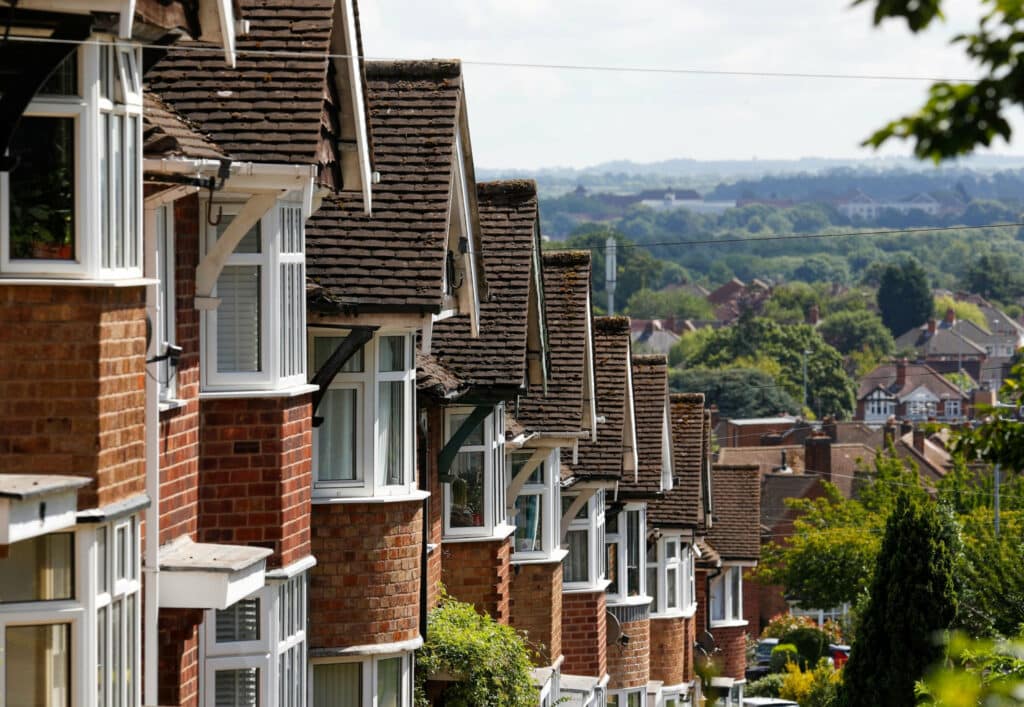UK average nationwide house prices adjusted for inflation – have they really gone up that much?
If you have any questions or want to invest, you can email me (advice@adamfayed.com) or use these contact options.
Table of Contents
Introduction
UK is a country that is famous for its high standard of living. It’s comfortable and safe here. You can live in peace, get an education and develop your own business. In the UK, the law is very respected and everyone tries to comply with the norms prescribed in it.
Real estate in the country is not cheap. In addition, there are a large number of old buildings on the market. However, it is worth saying that many are impressed by their originality and charm. In winter, you can warm yourself by the fireplace and get a lot of pleasure from the process. If you try, you will be able to find an affordable option.

The people here are polite, sociable, well-mannered, and friendly. They have a friendly smile and are always ready to help. It is clear that the difference in mentalities exists and this is far from a myth. However, you can always find colleagues of interest even in another country. Although it is not customary to have heart-to-heart conversations in the understanding of a European.
The UK is a country of great opportunity. Here, many achieve success and open up new perspectives for themselves. England has a lot of weight in the world community, so it is very honorable to be its citizen.
It is not a secret that the United Kingdom is one of the most developed countries in Europe. It is not surprising that a British visa opens up a number of advantages and opportunities for immigrants. but what is going on now in the UK? Why is there a noise about the inflation and the cost of living in the UK? And finally, what is the problem? Let’s find out the answers to all these questions in this article.
Will inflation in the UK rise?

Prices in the UK have risen sharply in recent months and are now higher than a year ago. The rate of this increase is called the rate of inflation.
The inflation rate rose to 5% in winter 2021 and will reach around 6% by spring 2022. But we expect it to start declining after that.
This is because most of the causes of the current high inflation rate are short-lived. Many of them are related to the impact of the Covid pandemic on the economy.
Inflation is expected to decline fairly quickly from the second half of 2022 as these temporary factors wear off, and it is expected to continue to fall in 2023.
But even though the rate of inflation will slow down, the prices of some things may remain at a high level compared to the past.
There are several reasons why the inflation rate started to rise in 2021. This was partly due to the economic recovery from the COVID-19 crisis.
When economies around the world, including in the UK, reopened after COVID-19 restrictions eased, people naturally wanted to start buying things again.
But the people selling some of these things had trouble getting enough of them to sell to customers. This led to higher prices in 2021, especially for goods imported from abroad.
There were also unexpected events, like a flood, which slowed down the production of all kinds of electronic goods.
Added to these factors is a very sharp increase in energy prices (oil and gas), especially in recent months. All of this has driven up prices and will continue to be reflected in the annual rate of inflation over the next year or so.

How high will inflation be in the UK?
The inflation rate is expected to reach around 6% by spring 2022. This is higher than usual, but there are many things that were not normal in 2020 and 2021.
It is not a secret that some people are concerned about the return of the high rates of inflation that the UK experienced in the 1970s. But this time inflation will not approach these levels.
The inflation will remain high over the next year before starting to decline to 2%. Inflation (rising prices) means an increase in the cost of living. You will be able to buy less of some things for the same amount of money than before.
But how much the cost will change will vary. The cost of some things will rise more than others. Some prices may even go down.
What will matter is how much your total cost of living changes relative to your income. If prices rise and your income stays the same as it was a year ago, you will notice that it doesn’t go as far as it used to.
The inflation is expected to start declining in the second half of 2022 and into 2023. Thus, the faster growth in the cost of living that we are seeing now will begin to slow down.
UK cost of living is higher than the wages

The figures show that wage growth in the UK continued to lag behind the rise in the cost of living between October and December. Wages rose, but adjusted for inflation, they fell by 0.8% compared to last year, the Office for National Statistics (ONS) said.
The latest data also shows that the unemployment rate has fallen to 4.1% and the number of vacancies has reached a new record level. There are indications that this pressure could lead to faster wage growth in the coming months.
Regular employee salaries, excluding bonuses, rose 3.7% from October to December year-over-year, according to the ONS, which is strong compared to rates seen over the past decade.
However, rising prices for food, energy, and household goods led to a 5.4% increase in inflation in the 12 months to December. The ONS reported that real wages fell 0.8% between October and December compared to a year ago.
The Bank of England has warned that the pressure on workers will intensify as inflation rises above 7% this year.
But the ONS said early estimates show employers are responding with wage hikes further and faster. It says that for payroll workers in January, the average monthly wage increased by 6.3% compared to the same month last year and was 10.3% higher than before the pandemic in February 2020.
The wage growth for salaried workers last month seemed to easily outpace inflation in some industries such as science, finance and insurance, information and communications, and hotels.
Employers are forced to raise salaries due to the constant shortage of workers.
Meanwhile, according to the ONS, job openings hit another record 1.3 million between November and January, with most industries finding it harder to hire workers.
The good news is that the UK economy continues to create jobs, and the bad news is that businesses are hesitating whether to hire with the rising inflation rate.
House prices in the UK in 2022
According to the latest statistics, 52.8% of families in the UK own their own home; 28.2% own property outright, and 24.6% own property through a mortgage. This figure is lower than the EU average but higher than in European countries such as Germany, France, and Switzerland.
The average cost of a typical UK home is at an all-time high of £254,822, up £24,000 from the past 12 months, despite enforced temporary lockdown restrictions.
Growth has continued after the gradual easing of the stamp duty relief, albeit at a slower pace, leading many to debate what the housing market will look like in 2022.
Will house prices fall in four countries, will the market collapse or government intervention be required, or will prices remain high in England, Wales, Scotland, and Northern Ireland?
According to Halifax, the UK house price rise is likely to end next year as household finances become increasingly tight.
A sharp rise is expected in average home prices over the past two years – 8% this year and 6% in 2020 – to subside, with “generally stable growth” forecast for 2022.
High levels of house prices are expected to continue – the average UK house price is £272,992, almost £34,000 higher than at the start of the pandemic – but that growth will be 2% in 2022.

Why are house prices so high in the UK?
Despite concerns about COVID-19 and the pandemic, the housing market has been buoyant in the past 2-to 3 years, helped by stamp duty holidays.
The main reason is the rise in world energy prices. In particular, gas prices have risen sharply over the past year, but the Resolution Fund warns that the conflict in Ukraine is making matters worse.
The crisis in Ukraine has increased both the scale of price increases and the degree of uncertainty about their level and duration.
Businesses are already facing higher electricity, gas, and transportation bills, and some are passing the extra costs on to customers. Supply chain issues and higher shipping costs are also putting pressure on companies.
Staff shortages are a particular problem in the UK due to Brexit and the pandemic, prompting some employers to raise wages. However, this in itself can contribute to inflation. This could raise prices for a second time this year to cover higher labor costs.
Pained by financial indecision? Want to invest with Adam?

Adam is an internationally recognised author on financial matters, with over 376.1 million answers views on Quora.com and a widely sold book on Amazon



